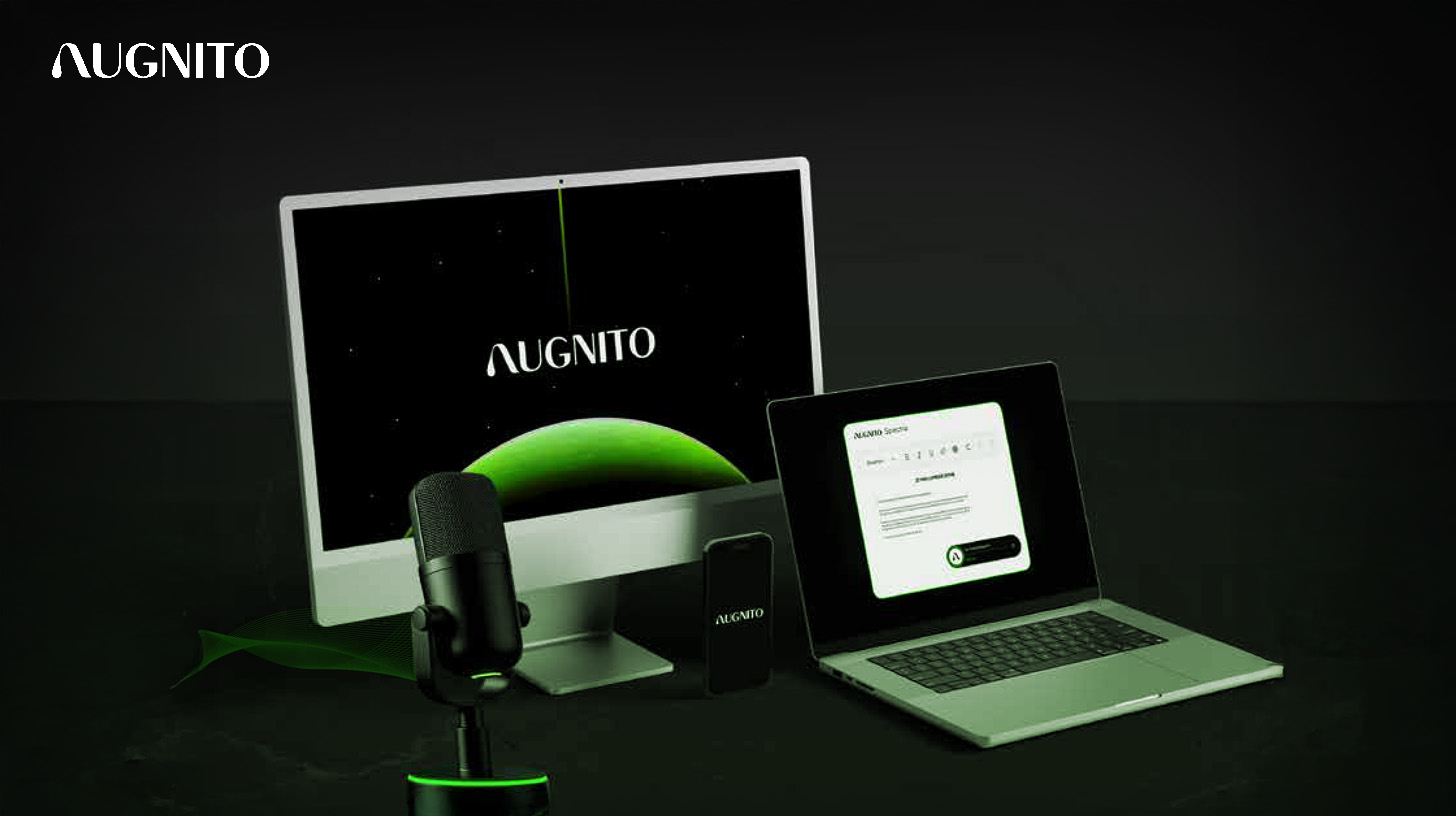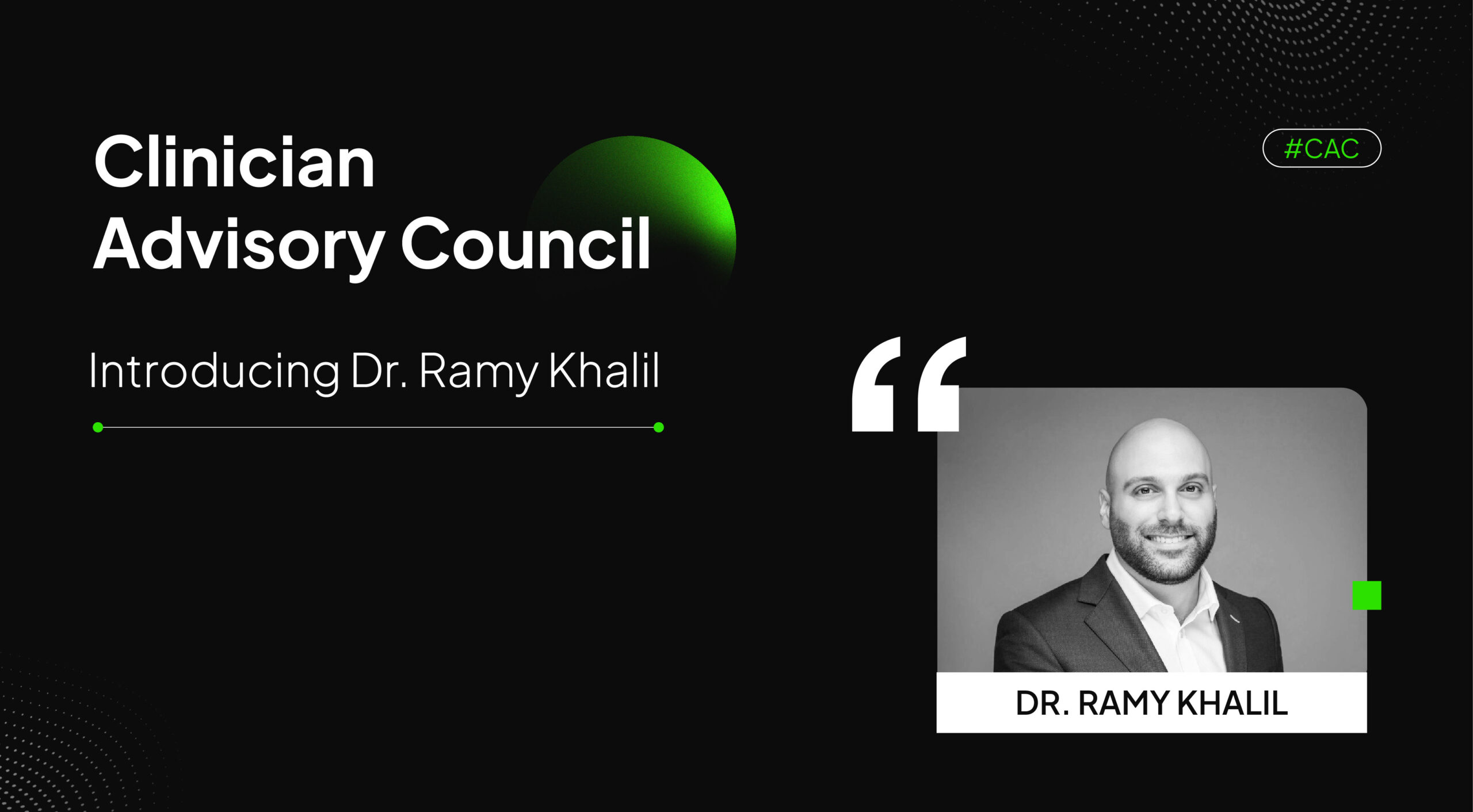What is Voice-Based AI & how has it changed healthcare?
Voice-based AI technology utilizes algorithms to process and understand human speech. It involves the implementation of Automatic Speech Recognition (ASR) for the accurate transcription of spoken words and Natural Language Processing (NLP) for comprehending and interpreting their meaning.
The deployment of voice-based AI In healthcare simplifies tasks like medical transcription and enhances patient care. It has revolutionized the industry with its accuracy, efficiency, and productivity benefits,
As well as opening a realm of possibilities for innovation and experimentation.
Among the several ground-breaking advancements that already took place, one remarkable development is the integration of voice-based AI in medical transcription and Electronic Medical Record (EMR) systems. This convergence is just the beginning of what is poised to be a new era of healthcare innovation.
Today, healthcare faces challenges with accurate transcription and documentation due to the increasing volume of data and complex terminology. The manual methods are slow and prone to errors, causing care delays, claim rejections, and misinterpretation. Overworked professionals also need a streamlined solution that will augment their capabilities and increase the efficiency of administrative tasks like transcription and documentation. They must be able to focus on their primary goal: high-quality patient care.
This blog describes How AI has facilitated the same and continues to revolutionize medical transcription, EMR systems, Electronic Health Records (EHRs), Health Information Technology (HIT), and healthcare innovation—leading to a comprehensive digital transformation in healthcare.
Benefits of Voice-Based AI in Healthcare
Voice-based AI technology holds significant advantages in the healthcare industry:
-
- Time-Saving Automation: Voice-based AI automates medical transcription, saving valuable time for healthcare professionals. This technology eliminates manual transcription services and enables faster turnaround times.
-
- Improved Accuracy: Leveraging advanced algorithms and Machine Learning, voice-based AI ensures more accurate transcription of medical reports. This accuracy enhances documentation and communication among healthcare providers, reducing the risk of errors.
-
- Enhanced Efficiency: Voice-enabled virtual assistants powered by AI facilitate efficient access to medical records. Healthcare professionals can quickly retrieve and review patient information, enabling smoother workflows and improved productivity.
-
- Cost Saving: By eliminating the need for manual transcription services or dedicated personnel for transcription tasks, voice-based AI technology offers cost-effective solutions. Healthcare organizations can redirect resources to other critical areas while reducing expenses associated with transcription services.
-
- Diagnostic Accuracy and Informed Decision-Making: AI-powered voice analysis can help improve diagnostic accuracy by analyzing vocal patterns and detecting anomalies. This technology enables healthcare providers to make more informed decisions and patient outcomes.
-
- Driving Innovation: Voice-based AI technology revolutionizes the healthcare industry by fostering innovation. It opens avenues for developing new applications and solutions that leverage voice recognition and Natural Language Processing, further advancing patient care and treatment methods.
Advantages of Voice-Based AI Technology in Electronic Medical Records (EMR) Systems
-
- Enhanced Patient Care: Voice-based AI technology in EMR systems improves patient care by providing quick and easy access to accurate and up-to-date medical records. Healthcare providers can use voice commands to retrieve patient information, enabling them to make informed decisions and provide personalized care.
-
- Streamlined Workflow: Streamlines the documentation process in EMR systems, reducing administrative burden and improving workflow efficiency. With a simple spoken command, healthcare professionals can dictate their clinical notes, allowing them to focus more on patient care and reducing the administrative burden.
-
- Reduced Documentation Errors: Minimises the risk of documentation errors by transcription of spoken language accurately. Healthcare providers can verbally dictate diagnoses, treatment plans, and medication instructions, ensuring accurate information gets captured in the Electronic Medical Record (EMR) system. This advanced feature significantly reduces documentation errors.
-
- Improved Compliance: Voice-based AI in Healthcare helps ensure compliance with regulatory standards and documentation requirements. The AI system used in healthcare improves compliance by prompting healthcare providers to include essential information during dictation. It ensures adherence to documentation standards, enhancing accuracy and completeness in clinical notes.
Use Cases of Voice-Based AI Technology in Medical Transcription and EMR Systems
-
- Real-Time Transcription: Enables real-time transcription of medical conversations or dictations, facilitating immediate documentation. During a telemedicine appointment, the AI system provides a real-time transcription of the doctor-patient conversation, creating accurate and instant electronic health records.
-
- Patient Note-taking: Allows healthcare professionals to take patient notes using voice commands, improving efficiency and accuracy. When a patient visits, a doctor can dictate their observations, symptoms, and treatment plans, as voice-based AI transcribes this information into Electronic Health Records, it makes note-taking seamless and efficient for healthcare professionals.
-
- Voice-Powered Clinical Documentation: Voice-based AI Technology simplifies clinical documentation by allowing healthcare providers to input information directly into the EMR systems. It enables nurses to effortlessly document vital signs, medications administered, and other clinical details using voice commands, reducing the need for manual data entry.
-
- Transcription of Medical Imaging Reports: Voice-based AI technology transcribes accurate medical imaging reports, such as radiology or pathology findings. Radiologists benefit from a streamlined workflow as they verbally describe their observations during an imaging study. The AI system transcribes the outcomes directly into the patient’s record, enhancing efficiency and accuracy in radiology reporting.
The Future of Voice-Based AI Technology in Healthcare
-
- Advancements in Natural Language Processing (NLP): Continued improvements in NLP algorithms will enable voice-based AI systems to understand and interpret complex medical language. AI in healthcare systems will become more adept at recognizing specialized medical terminology and accurately extracting valuable insights from patient conversations.
-
- Integration with Wearable Technology: Voice-based AI technology will seamlessly integrate with wearable devices, enabling patients to provide health updates and receive personalized recommendations. A patient wearing a smartwatch can use voice commands to report vital signs or symptoms, and the AI system can analyze the data for early detection of health issues.
-
- Greater Interoperability: Voice-based AI technology will enhance interoperability among healthcare systems and devices, enabling seamless data exchange. Use of voice commands to securely transfer patient information between EMR systems, improving care coordination and continuity.
-
- Adoption by Healthcare Providers: Voice-based AI technology continues to prove its benefits, and more healthcare providers will adopt and integrate it into their workflows. Doctors are adopting voice-enabled virtual assistants to streamline their workflow to access patient records, retrieve medical information, and perform administrative tasks.
Top Voice-Based AI Solutions in Healthcare: Augnito, Nuance, Suki AI, Deep Scribe
Advancements in speech recognition software have led to a wide range of professional software and medical dictation apps, enabling clinicians to simplify their documentation process.
As of 2023, several top voice-based AI solutions have emerged in the healthcare industry to cater to medical dictation and transcription needs. Among these solutions are Augnito, Nuance, Suki AI, and Deep Scribe, each offering unique features and benefits.
Among these solutions from this list, Augnito stands out slightly for its emphasis on accurate medical speech recognition with efficient transcription services with any accent and medical specialty.
Through automation and real-time feedback, these solutions also reduce transcription costs, drive productivity by allowing more detailed input in less time, improve revenue cycle management, and increase satisfaction among healthcare providers.
Conclusion
Voice-based AI technology brings many benefits to healthcare, like improved efficiency, accurate medical speech recognition, cost-effectiveness, and time-saving features in medical transcription and EMR systems. It enhances patient care, streamlines workflows, reduces documentation errors and improves compliance.
The future implications of this technology include advancements in speech recognition in healthcare, advancement in NLP, integration with wearables, greater interoperability, and increased adoption by healthcare providers. By 2023, the market value of these technologies will surpass $20 million.
All of these hold great potential for transforming healthcare and driving innovation in the industry. Embracing this technology will enable healthcare providers to unlock new levels of productivity, accuracy, and quality in their daily operations, ultimately leading to better healthcare outcomes for everyone.
As AI evolves and becomes more widely accessible, healthcare will adopt other facets of its potential—like ambient technology to document doctor-patient encounters and create patient notes or prescriptions from it, leveraging generative technology. Some companies are even exploring the capabilities of Voice biomarkers in the early detection and predictive diagnosis of neurological disorders such as Parkinson’s Disease and Alzheimer’s Disease. The future is closer than you think!
Take the next step and explore the transformative power of voice-based AI. Learn more today! Sign up for a 7-day free trial or Schedule a Free Demo Now!



